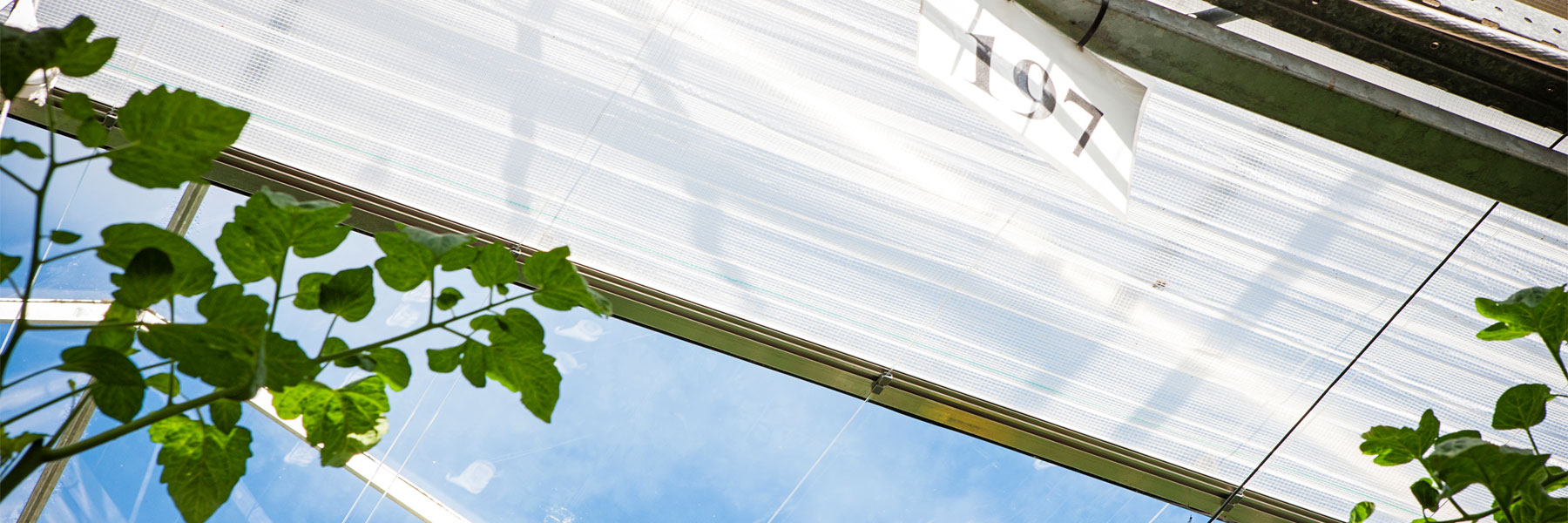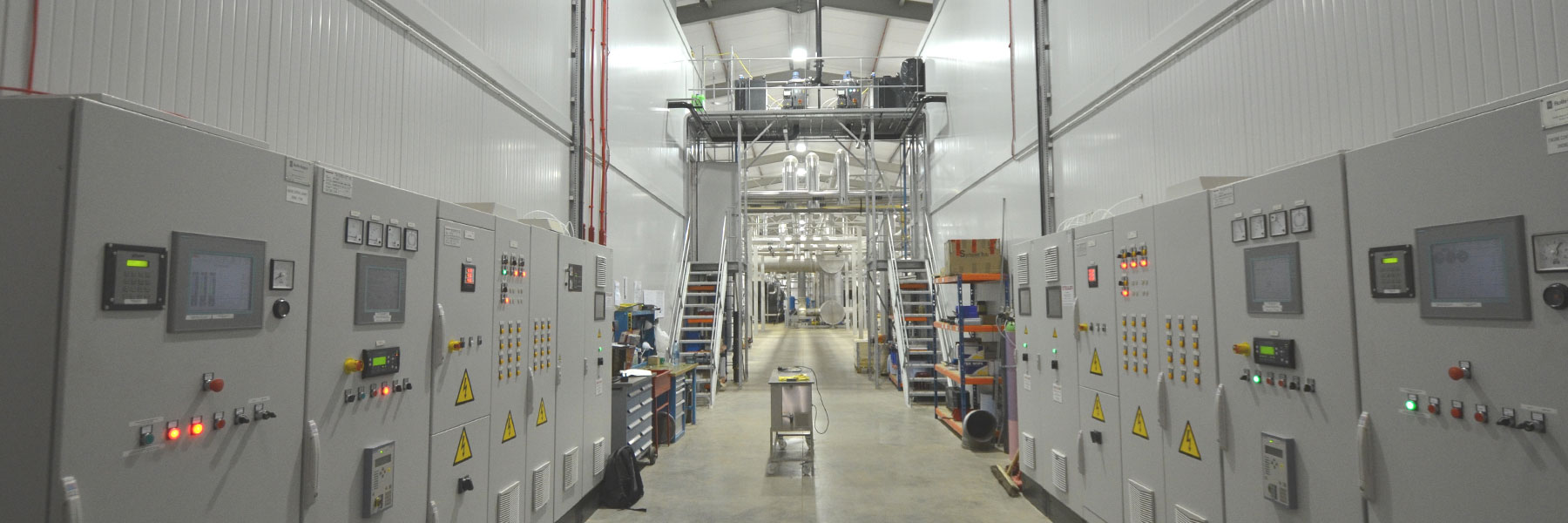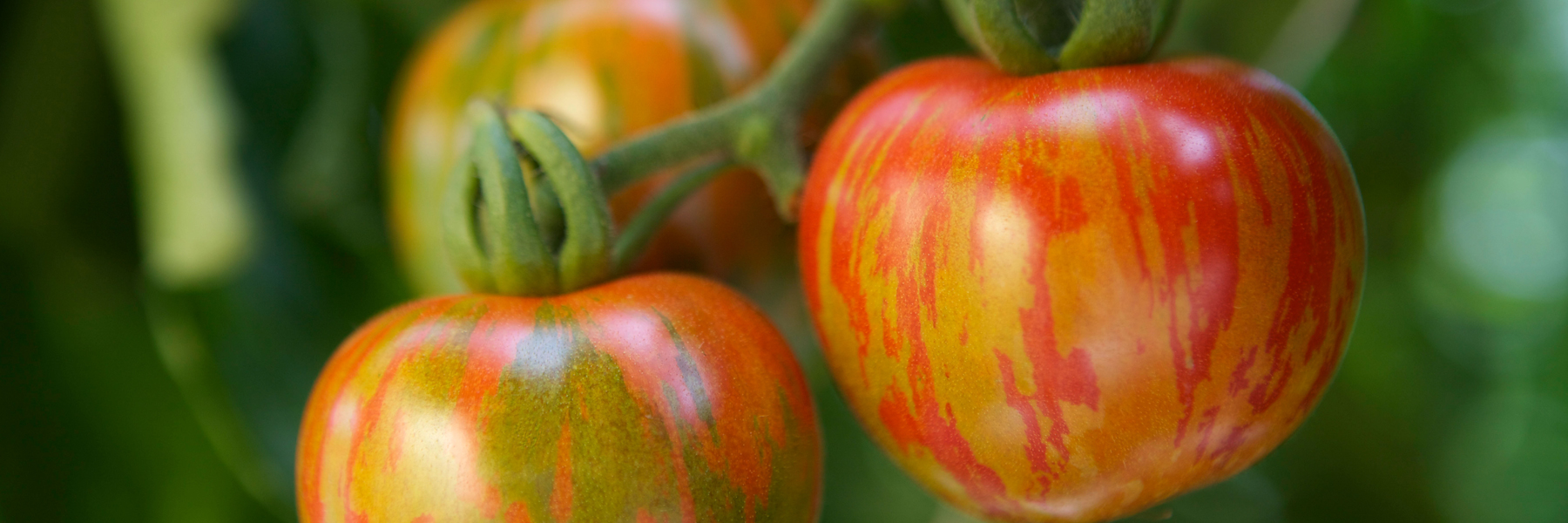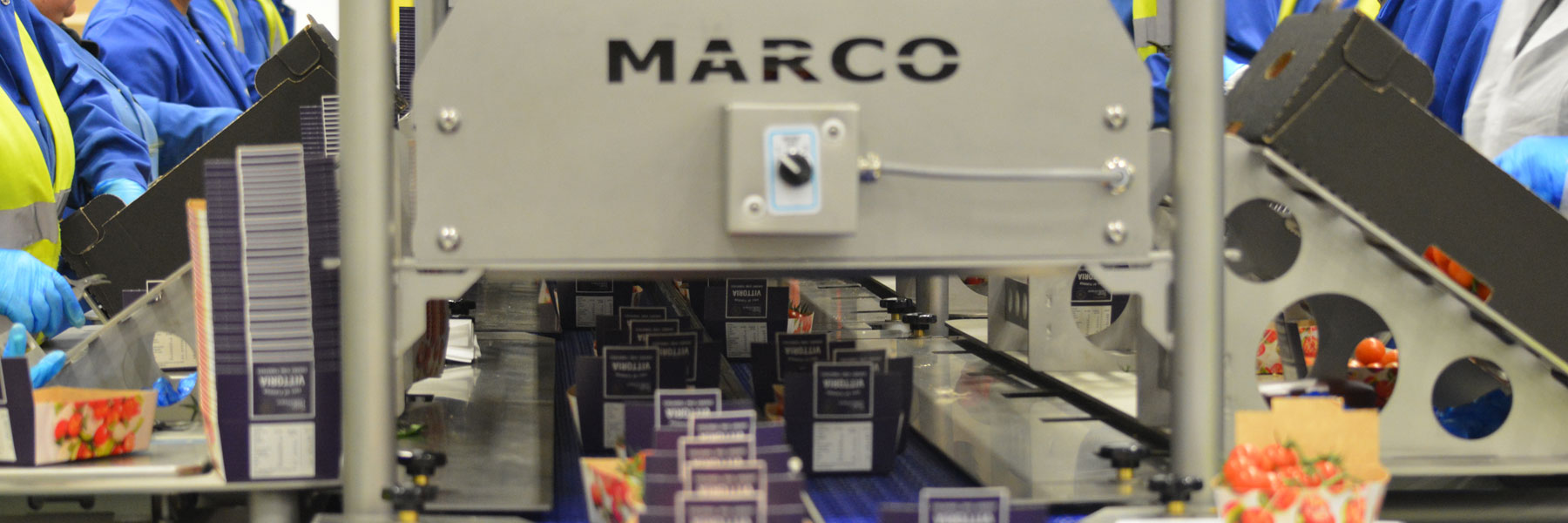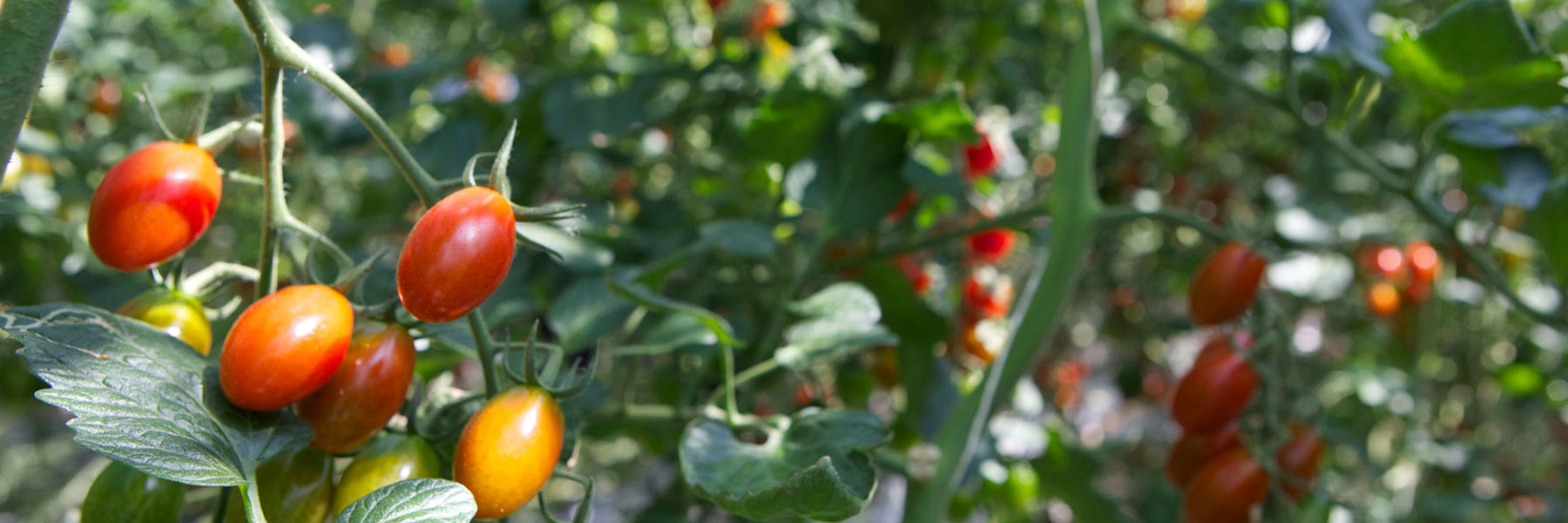Innovations
Anaerobic Digestion
Working with industry experts and a number of universities, our nursery in Cheshire has developed a unique and highly innovative anaerobic digestion (AD) plant that uses all 3,500 tonnes of our tomato crop's leaf waste and converts it into valuable by-products that can be used in our tomato growing operation. These include bio-plastics and leaf fibre cellulose, which is used in the manufacture of packaging film and punnets to pack our tomatoes for sale. This is an elegant and innovative solution to a waste management problem.
Composting
We produce our own compost, which we use for our industry leading organic tomato production.
Thermal Storage Tanks
Thermal storage tanks work very well with the CHP systems which operate in the day when demand for carbon dioxide is highest, and electricity is required by the National Grid, but the crop doesn’t require heat. When the sun goes down, the hot water stored in our thermal storage tanks is pumped back into the glasshouses, to keep the crop warm without the need to run a boiler.
Energy efficiency
Energy efficiency is central to any successful glasshouse business. On our growing sites we use Combined Heat and Power Plant (CHP) engines. These use natural gas to produce electricity, which is fed into the local electricity grid (powering over 200,000 homes). We then use the waste heat to warm the tomato plants in our glasshouses and waste carbon dioxide produced to help nourish them.
Ground Source Cooling
At our Alderley Edge nursery the heat rejected from the packhouse, from cooling the tomatoes , is used to warm the irrigation water. This saves 40% of the electricity normally used to cool the fruit, and also saves the fuel normally needed to heat the water, thus improving fruit quality and crop production at the same time.
Irrigation
Water is perhaps our most precious and essential natural resource. Making the most of every drop, most of our tomato crops are grown hydroponically – a highly efficient way of growing when considering resource management. Hydroponic crops are grown in substrates and drip fed through a computer controlled irrigation system delivering precisely what the plant requires.
Varietal Improvements/
Developments
We work closely with seed companies to trial and develop new varieties. This includes carrying out internal and independent taste panels, which enables us to produce premium quality tomatoes with the best flavour for our customers.
Thermal Screens
Our glasshouses are fitted with thermal screens which are closed each day, just as the sun is setting. These are automatic curtains which close above and around the crop, enabling us to capture and trap the last bit of the sun’s heat before nightfall. This helps to keep the tomato plants warm through the night whilst using less heat.
LED Supplementary Lighting
Light Emitting Diodes use very little electricity, and we only utilise the wavelengths of light that the plants require, ensuring maximum energy efficiency, allowing us to grow all year round with no compromise in flavour.


